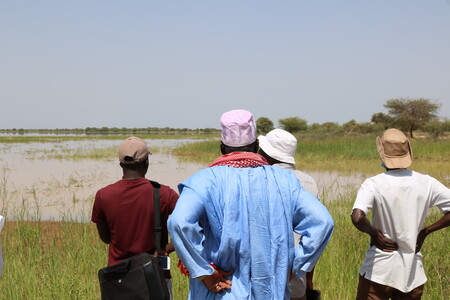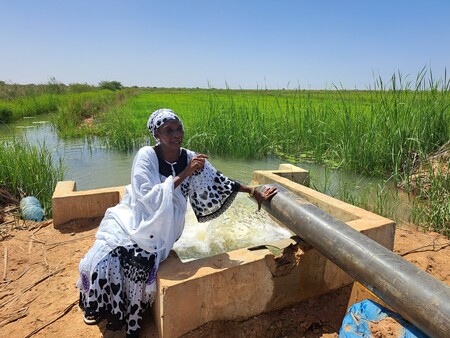Water tenure assessment for improved policy development
Water tenure determines how people obtain rights to water resources, including the right to access, impound, use and manage water, gain access to information and participate in decisions on water resources management. To ensure equitable distribution to all legitimate rights holders and to protect natural ecosystems, it is important that existing water tenure arrangements are coherent and all legitimate tenure rights are recognized by national legislation.
Water tenure arrangements can be very complex and vary considerably, including within the same country, influenced by local and social practices, traditions and status, geography, environment and livelihood practices. Different water tenure arrangements may coexist and/or overlap in the same region and water tenure holders may belong to more than one water tenure arrangement.
The KnoWat project developed a water tenure assessment methodology to identify and analyse the diversity of water tenure arrangements that may exist within a catchment or community. The methodology includes desk research and field data collection as well as capacity building and consultations with decision-makers, national stakeholders and local people that depend on water for their livelihoods.
What can we learn from the assessment of water tenure in the Senegal River Basin?
The water tenure assessment in the Senegal River Basin focused on institutional and legal frameworks as well as customary water governance. Three field missions took place in the research areas in Podor and the Gorom-Lampsar axis in Saint-Louis. The results of the assessment were validated at local and national levels by key stakeholders.
The assessment found that:
• Formal law and customary provisions governing tenure relationships coexist in the research area.
• Some local water users are unaware of water laws and regulations, and some local authorities lack the capacity to implement and enforce water legislation.
• Current legislation is not adapted to new challenges, such as the intensification of agribusiness, climate change and population growth, all of which are putting increased pressure on water use.
• Current legislation around water resources management does not take into account local customs and practices, nor does it consider the circumstances of women, young people and marginalized groups. This leads to unequal access to water resources for some people, negatively affecting their livelihoods, food security and sanitation.
• The large number of water stakeholders and the lack of synergy between them create major constraints for integrated water management.
• Users have little involvement in water policy development and management. • There is no operational framework for dialogue between actors.
Based on these findings, it was recommended that decision-makers take steps to raise awareness among water users of existing water legislation. Water legislation should be reconciled with the local customs and good practices of water users. A further recommendation was to strengthen the participation of water users in decision-making and reforming the water sector, and to include access to water as a human right in the Senegalese constitution.
Above all, measures should be taken to reduce conflicts between water users and to ensure availability and more equitable access to water resources for everyone. Stakeholders from government and civil society and research, technical and financial partners have proposed that the water tenure assessment results be disseminated widely. The results should also inform the process of revising Senegal's new water law.

- Senegl. Field visit, October 2019.

